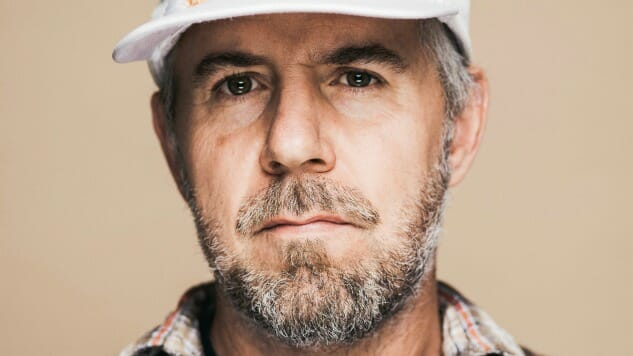Jason Lytle on His Ten-Year Break from Grandaddy: “Sometimes You Just Gotta Duck Out”

Jason Lytle had not exactly intended to revive Grandaddy. The singer/songwriter had put the kibosh on his longtime indie-rock project in 2006, right after their fourth release, Just Like the Fambly Cat. He had good reason to disband Grandaddy at the time, despite its critical success, in place since the band’s sweetly eccentric debut, 1997’s Under the Western Freeway. Lytle was exhausted and wanted out.
“I was unhealthy, I was unhappy, I was overwhelmed with the travel,” he tells Paste over the phone from his home in California. “All of the demands and stuff. I’m just not really suited to that kind of living. At that time I’d relocated out to Montana, and I’d become very happy and accustomed to my new pace of life.”
Lytle went on to release two solo albums, 2009’s Yours Truly, The Commuter and 2012’s Dept. of Disappearance. He also briefly reunited with Grandaddy for a series of festival dates immediately prior to putting out his sophomore work. Even if it would be another few years before he’d reach out to his former bandmates—Aaron Burtch, Tim Dryden, Jim Fairchild and Kevin Garcia—Lytle got the sense that if he did choose to record another Grandaddy album, it would be on his terms.
That’s exactly what happened. On March 3, Grandaddy will release their fifth album, Last Place. It’s also their first in 10 years, though sonically you wouldn’t know it’s been that long. Showcasing the band’s trademark blend of melancholic rock, psych-pop and electronica, opener “Way We Won’t” layers Lytle’s whispery vocals with stocky guitar and jovial synth-work while masking depressive undertones (“Damned if we do… Dumb if we don’t”). Buzzing single “Evermore” stays the course with upbeat but overtly anxious instrumentation. This much is clear: Lytle hasn’t let time alter the distressed romanticism that initially endeared Grandaddy to fans 20 years ago.
Below, Lytle discusses warming back up to Grandaddy, the divorce that heavily influenced the lyrics on Last Place and whether or not we can expect any more albums moving forward.
Paste: What ultimately drove you to resurrect Grandaddy?
Jason Lytle: Well, that 2012 kind of reunion thing that we did was definitely a big one, and that wasn’t even my idea. I have a manager, who’s also a good friend of mine who I’ve worked with for a while, he was involved in the Grandaddy stuff as well. He was just like, “Yeah, it’s kind of crazy all of the offers and the interest that still exists.” And I was like, “But I don’t really care about that, I’m kinda doing my own thing now.” And I was happy to not be.
So anyway, they just kind of talked me into it. They assured me that things would be different and things would be done more in a qualitative manner. And I think because [the 2012 reunion] was so brief—it was just, like, two weeks of all these festivals—that I could wrap my head around everything that was happening. We had our old crew with us and we had some cool vacation time that went along with it. It was just like, “Alright, let’s just see what happens.” Maybe, subconsciously, something got planted in my head at that point. Right now it’s still an experiment, y’know? It could very well end up being this terrible mistake, but at some point I got into the idea of making a record and I got into the idea of really investing myself into making record.
Paste: When an influential artist returns after a long time, I’m betting that they’ll be able to call the shots more so than when they first started out.
Lytle: I think good intentions have a lot to do with it, too. I think in no way is this pandering or an act of desperation or anything. So I had to come to terms with this in my own mind too, like, “what is this really about?” It really came back around to this stubbornness, or this kind of consistent sort of relationship with the fans; people have just not gone away, they’ve not given up on this Grandaddy thing. It’s very impressive, to the point where it’s undeniable and it ended up being a big inspiration to me. A lot of times I’d come to these creative crossroads and I’m just like, “All right, what the hell do I do now?”
-

-

-

-

-

-

-

-

-

-

-

-

-

-

-

-

-

-

-

-

-

-

-

-

-

-

-

-

-

-

-

-

-

-

-

-

-

-

-

-








































